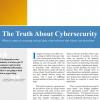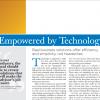When many of us hear that someone has fallen victim to a financial scam, we conjure up an image of a doddering oldster gleefully sending their life’s savings to help a Nigerian prince.
As auto-dialing, internet calling services and other technological advancements become more accessible, consumers have seen scam calls skyrocket in the past few years, and tax season is, predictably, the busiest time of year for scammers. Time to warn Grandpa, right? Not so fast.
Some of us need take a long hard look in the mirror, as according to recent survey of 1,000 mobile phone users by First Orion, it is millennials who are the most likely to fall victim to financial phone scams. In fact, it’s not even close. Millennials are nearly three times as likely to experience a financial loss from a phone scam as baby boomers.
It’s generally accepted that millennials are the most technologically adept generation, so how can they be falling for these simple tricks at such a high rate? First Orion posits that it’s millennials’ very comfort with technology that is likely their undoing.
The Internal Revenue Service recently warned consumers and professionals alike that the rash of data breaches over the past several years have given thieves access to millions of identity data points, including names, addresses, Social Security numbers and email addresses. This gives scammers more opportunities to lull consumers into a false sense of security during scam calls. According to the survey, millennials are six times more likely to disclose personal information over the phone if the caller could verify the last four digits of their Social Security number.
“As digital natives, millennials are often less skeptical about the repercussions of sharing their personal information and trust that financial security systems will protect them. Older generations, however, tend to be more hesitant because they better understand the ramifications of fraud and identity theft, plus, they have generally built up more wealth and therefore have more to lose.” says Scott Ballantyne, chief marketing officer of First Orion.
The rate of scam calls is only increasing. In 2018, respondents were four times as likely to have received a scam call within the past week as compared to the same time frame in 2015. Further, the scammers are becoming bolder, as one third of respondents have received an email, text or call from someone impersonating the IRS.
During this stressful time of year, advisors should remind their clients to remain vigilant in monitoring their financial affairs and stress that the IRS does not reach out to taxpayers via telephone.









